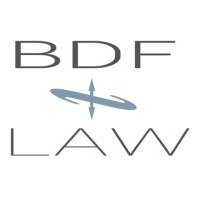Best Estate Planning Lawyers in Launceston
Share your needs with us, get contacted by law firms.
Free. Takes 2 min.
List of the best lawyers in Launceston, Australia
About Estate Planning Law in Launceston, Australia
Estate planning in Launceston, Australia, involves organizing the management and disposal of an individual's estate upon their incapacitation or death. It encompasses a variety of legal processes including drafting wills, setting up trusts, and designating power of attorney. This field ensures that an individual's assets are distributed according to their wishes and that their family's financial security is maintained. Estate planning also involves minimizing the tax burden on an estate and addressing any legal issues that may arise during the administration of an estate.
Why You May Need a Lawyer
There are numerous circumstances where a lawyer's expertise in estate planning is invaluable. These include:
- Creating or updating a will to ensure it's legally binding and reflects your current wishes.
- Establishing a trust to manage your assets during and after your lifetime.
- Navigating complex family dynamics, such as blended families, where clear directives are crucial.
- Reducing taxes and other expenses that could diminish the value of your estate.
- Planning for incapacity through documents like enduring powers of attorney and advanced health directives.
- Ensuring the efficient and dispute-free distribution of your assets.
Local Laws Overview
Estate planning in Launceston is governed by federal and state laws that dictate how estates are handled. Key considerations include:
- Wills Act 1997 (Tas): Determines the requirements for a valid will, such as age, capacity, and signature requirements.
- Intestacy Laws: Outline how estates are distributed if a person dies without a will, often following a hierarchy of relatives.
- Powers of Attorney: Regulates the appointment of individuals to make financial or medical decisions on your behalf.
- Probate and Administration Act 1935: Governs the probate process, which validates wills and oversees the distribution of estates.
- Succession Law: Addresses the right to challenge a will if dependents feel inadequately provided for.
Frequently Asked Questions
What documents are typically involved in estate planning?
Estate planning typically involves creating a will, establishing trusts, power of attorney documents, and sometimes, advanced health care directives.
At what age should I start estate planning?
You can start estate planning at any adult age. It is especially important when you acquire significant assets or have dependents.
What happens if I die without a will?
If you die intestate (without a will), your assets will be distributed according to Tasmanian intestacy laws, which may not align with your personal wishes.
Can I prepare my own will, and is it legally valid?
You can prepare your own will, but to be legally valid, it must comply with certain legal requirements, and self-written wills can often lead to disputes.
How often should I update my estate plan?
Your estate plan should be reviewed and updated every 3-5 years or after major life events like marriage, divorce, the birth of a child, or significant changes in assets.
What is the role of an executor?
An executor is responsible for managing the deceased's estate, ensuring debts and taxes are paid, and distributing the remaining assets in accordance with the will.
Do I need a trust in my estate plan?
A trust can be beneficial for managing assets for beneficiaries or minimizing tax implications. It is particularly useful in complex family or financial situations.
How are estate taxes handled in Tasmania?
While Australia does not impose estate or inheritance taxes, other taxes may apply on income or capital gains, requiring strategic planning to minimize them.
What is the process for contesting a will?
To contest a will in Tasmania, an interested party must file a claim during probate, often proving the will doesn't adequately provide for them under the law.
Can digital assets be included in an estate plan?
Yes, digital assets like online accounts and digital files can be included in your estate plan, ensuring access and management posthumously.
Additional Resources
For those seeking additional information or legal guidance in estate planning in Launceston, consider the following resources:
- Tasmania Legal Aid: Provides legal assistance and resources online and through their local offices.
- The Law Society of Tasmania: Offers a directory of practicing estate planning lawyers.
- Australian Government's MyGov website: Contains information and guidelines about estate planning and related legal processes.
Next Steps
If you need legal assistance with estate planning in Launceston, consider the following steps:
- Identify your estate planning needs by reviewing assets, family dynamics, and personal wishes.
- Research and consult with a qualified estate planning lawyer to discuss your situation and needs.
- Ensure all legal documents meet current legislative requirements and are regularly updated.
- Communicate your estate plan with your family or beneficiaries to prevent disputes or misunderstandings.
Lawzana helps you find the best lawyers and law firms in Launceston through a curated and pre-screened list of qualified legal professionals. Our platform offers rankings and detailed profiles of attorneys and law firms, allowing you to compare based on practice areas, including Estate Planning, experience, and client feedback.
Each profile includes a description of the firm's areas of practice, client reviews, team members and partners, year of establishment, spoken languages, office locations, contact information, social media presence, and any published articles or resources. Most firms on our platform speak English and are experienced in both local and international legal matters.
Get a quote from top-rated law firms in Launceston, Australia — quickly, securely, and without unnecessary hassle.
Disclaimer:
The information provided on this page is for general informational purposes only and does not constitute legal advice. While we strive to ensure the accuracy and relevance of the content, legal information may change over time, and interpretations of the law can vary. You should always consult with a qualified legal professional for advice specific to your situation.
We disclaim all liability for actions taken or not taken based on the content of this page. If you believe any information is incorrect or outdated, please contact us, and we will review and update it where appropriate.










